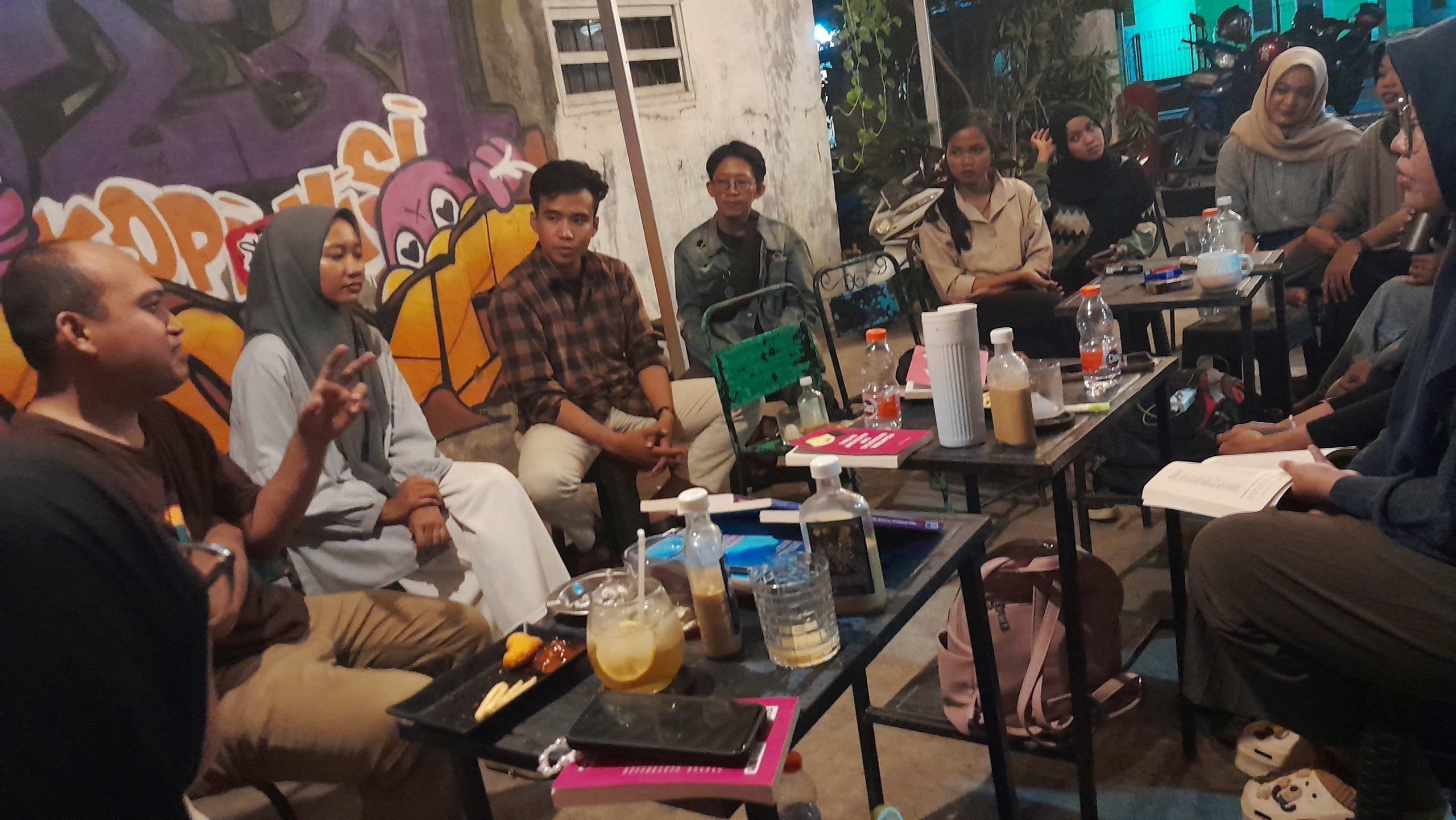Reporter: Ahmad Hadid
The book discussion “Pesantren, Seksualitas dan Kekerasan Seksual” (Islamic boarding schools, Sexuality and Sexual Violence) was held again at Kopi Satu Visi on Sunday, August 31, 2024. The “pink book” discussion featured one of the authors, Abdul Rosyidi from Umah Ramah, and Ayuning Dharma Malik from Literasi Senja as the book reviewer.
According to Abdul Rosyidi, the book under discussion is the outcome of Umah Ramah team’s research on sexuality in Islamic boarding schools. During his talk, Kang Ocid highlighted the inconsistency in the understanding of sexuality between references in the books and the reality of sexuality today.
“Islamic boarding school fiqh (Islamic jurisprudence) books frequently teach sexuality in a way that is out of step with today’s reality. Qurotul ‘Uyun, one of the well-known texts, for instance, ignores the discussion of sexuality as a whole in favor of concentrating more on the biological side,” he said.
Ayuning Dharma Malik, conveyed her deep impression of the book she reviewed. According to her, the book provides a complete insight into sexuality.
As a former student of pesantren, Ayuning further emphasized that texts that address sexuality in these institutions solely address bodily hygiene in order to determine the appropriate times for prayer and religious rituals.
“In my experience at pesantren, female students learn sexuality from the book Risalatul Mahidl. This book discusses biological aspects such as the menstrual cycle, istihadoh (abnormal vaginal bleeding outside the time of the monthly period) and nifas (the 40-day period after childbirth). However, the discussion in this book does not cover the psychological and social dimensions,” she said.
Ayuning added that fiqh books often view women as sexual objects and reproductive machines.
“There are books that explain the image of women related to their sexuality and how to have intercourse without providing a holistic perspective on women,” she said.
These perceptions and cognitions frequently result in the marginalization of women. In society, women are often marginalized and stigmatized because they are single or have not had children after a protracted marriage. []
This article was translated by Napol Riel.
